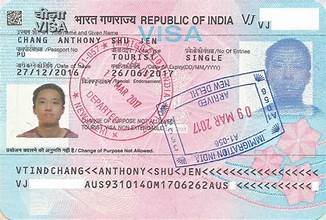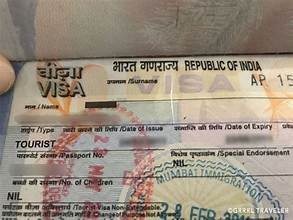Traveling to India from the United States requires obtaining an Indian visa for United States citizens. Whether you’re visiting for tourism, business, or other purposes, this article provides a comprehensive overview of the process, types of visas available, requirements, and important considerations to make your journey seamless.
What is an Indian Visa for United States Citizens?
An Indian visa for United States citizens is an official authorization issued by the Government of India that allows U.S. nationals to enter India for various purposes. Without a visa, U.S. citizens are not permitted to travel to India. This visa ensures that the traveler meets all the required criteria for entry and stays compliant with Indian immigration laws.
India offers a variety of visa categories for different types of visits, including tourism, business, medical treatment, employment, and more. The process and documents required for obtaining an Indian visa may vary based on the type of visa and the traveler’s specific needs.
Types of Indian Visas Available for United States Citizens
Indian visas for United States citizens are categorized based on the purpose of the trip. Some of the most common types of visas are as follows:
Tourist Visa
A tourist visa is the most popular visa for U.S. citizens visiting India. It is issued to travelers who intend to stay in India for leisure, sightseeing, or visiting friends and family. The tourist visa can be valid for up to six months, with single, double, or multiple entries allowed.
Business Visa
For U.S. citizens traveling to India for business-related purposes, a business visa is required. This visa allows the traveler to attend meetings, conferences, and other professional activities. The business visa typically has a validity of one to five years, with multiple entries allowed.
e-Visa for India
An e-Visa is an electronic travel authorization that U.S. citizens can apply for online. It is available for tourism, business, and medical visits and provides a convenient option for short-term trips. The e-Visa is usually valid for 60 days, with a single or multiple entries allowed. However, travelers must check their eligibility before applying, as e-Visa is not available for all types of travelers or purposes.
Employment Visa
If a U.S. citizen intends to work in India, they must apply for an employment visa. This visa is typically granted to individuals with specialized skills or those who have secured employment in India. The employment visa is usually valid for the duration of the employment contract but can be extended if required.
Medical Visa
A medical visa is granted to U.S. citizens who wish to travel to India for medical treatment. This type of visa is issued for short-term visits and is usually valid for six months. A medical visa can also be extended in case the treatment period exceeds the initial duration.
How to Apply for an Indian Visa for United States Citizens

The process of applying for an Indian visa involves several steps. Depending on the type of visa you are applying for, the procedure may vary. Here are the general steps involved in applying for an Indian visa:
- Choose the Right Visa Type: Identify the purpose of your visit and determine which type of Indian visa you need. If you are unsure, you can consult with the Indian Embassy or Consulate for guidance.
- Complete the Online Application Form: The first step is to fill out the Indian visa application form online. You will need to provide personal details, travel information, and the purpose of your visit.
- Gather Required Documents: Depending on the type of visa, you will need to submit certain documents such as a valid passport, passport-sized photos, proof of travel itinerary, financial documents, and more. Ensure that all documents meet the specifications outlined by the Indian authorities.
- Pay the Visa Fee: The visa application fee varies depending on the type of visa and the processing time. U.S. citizens can pay the fee online or through designated payment methods.
- Submit the Application: Once you have completed the application and gathered the necessary documents, submit your visa application to the Indian Embassy or Consulate. If applying for an e-Visa, you can complete the process entirely online.
- Attend an Interview (if required): In some cases, U.S. citizens may be required to attend an interview as part of the visa application process. You may also be asked to provide biometric data such as fingerprints or a digital photo.
- Wait for Processing: Visa processing times can vary based on the type of visa, your nationality, and other factors. For e-Visas, the processing time is usually quicker than traditional visa applications.
- Receive Your Visa: Once your visa is approved, you will receive your visa either as a physical document or electronically, depending on the type of visa you applied for.
Important Considerations for U.S. Citizens Applying for an Indian Visa
When applying for an INDIAN MEDICAL VISA, there are a few key points to keep in mind to ensure a smooth process.
Validity of Passport
U.S. citizens must have a passport with a validity of at least six months beyond their intended date of arrival in India. It should also contain at least two blank pages for visa stamps.
Visa Application Processing Time
Visa processing time can take anywhere from 3 to 7 business days, depending on the type of visa and the country of application. It is recommended to apply for an Indian visa well in advance to avoid delays.
Health and Vaccination Requirements
Although there are no mandatory vaccination requirements for U.S. citizens traveling to India, certain vaccinations (such as Hepatitis A, Hepatitis B, and Typhoid) are recommended. It is also essential to check for any health advisories or restrictions that may be in place due to pandemics or other health concerns.
Indian Visa Fees
The cost of an Indian visa for United States citizens depends on the type of visa being applied for, the number of entries, and the processing speed. For example, the fee for a tourist visa may differ from the fee for a business or e-Visa. Be sure to check the current fee structure on the official Indian visa website.
Extension of Indian Visa
If you need to extend your stay in India beyond the validity of your visa, you must apply for an extension at the Foreigners Regional Registration Office (FRRO) or the local Indian authorities before your visa expires. Extensions are typically allowed for medical, employment, or business purposes, but tourist visa extensions may be limited.
Conclusion
An Indian visa for United States citizens is a critical document for those planning to visit India. Whether you’re traveling for tourism, business, or medical treatment, it’s essential to select the right type of visa and follow the necessary steps to ensure a smooth application process. Always make sure your passport is valid, your documents are accurate, and you comply with the specific requirements for your visa type.
By understanding the Indian visa process and planning ahead, U.S. citizens can enjoy a hassle-free trip to India and make the most of their experience in this diverse and vibrant country.

